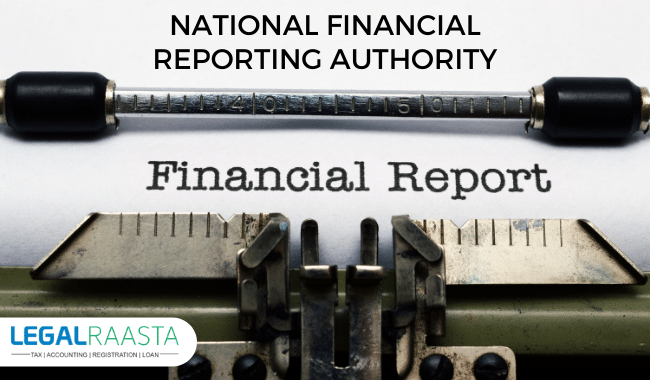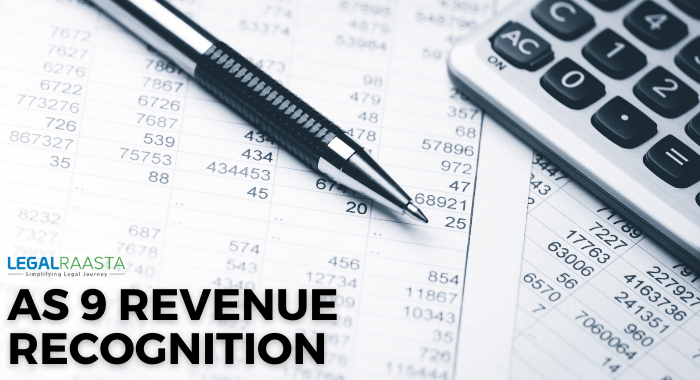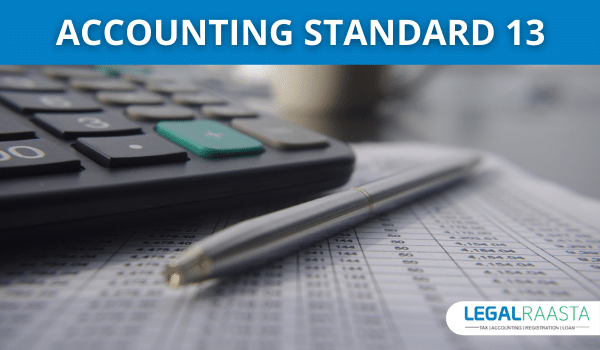NFRA – National Financial Reporting Authority
Incorporate governance, the quality of accounting and auditing is critical. The Central Government established the ‘National Advisory Committee on Accounting Standards’ (NACAS) under Section 210A of the Companies Act of 1956 to advise it on the formulation and laying down of accounting standards and auditing procedures. NACAS will be replaced by the National Financial Reporting Authority under the new Companies Act of 2013. (NFRA). The National Financial Reporting Authority (NFRA) is a quasi-judicial organisation that oversees accounting and auditing issues.
NFRA provisions under the Companies Act of 2013
Section 132 of the Companies Act, 2013 authorises the Central Government to establish the National Financial Reporting Agency (NFRA) to oversee accounting and auditing problems.
NFRA’s composition
The NFRA will be comprised of the following individuals, who will be selected by the Central Government:
1) An eminent individual with competence in accounting, auditing, finance, or law as Chairperson.
2) There can be a maximum of 15 members
a) Member- Accounting,
b) Member- Auditing and
c) Member- Enforcement.
3) A Ministry of Corporate Affairs representative with at least the level of Joint Secretary or equivalent.
4) A representative of the RBI who has been nominated by the RBI and is a member of the RBI Board
5) A SEBI representative who is either the Chairman or a full-time member and has been appointed by SEBI.
6) The central government must select a retired Chief Justice of a High Court or a person who has served as a High Court Judge for at least 5 years.
7) Institute of Chartered Accountants of India (ICAI) President.
NFRA’s structure
The following committees will make up the NFRA:-
I) Accounting Standards Committee;
ii) Auditing Standards Committee
iii) Enforcement Committee.
NFRA’s Roles and Responsibilities
A) In issues of professional misconduct committed by any member or Chartered Accountants firm, the NFRA may investigate either on its own initiative or in response to a referral from the Central Government.
B) Make recommendations to the Central Government on the development and implementation of accounting standards and auditing rules for use by businesses and their auditors.
C) To ensure that accounting standards and auditing procedures are followed, as well as to monitor and implement compliance.
D) To monitor the quality of service provided by professions involved in the application of accounting standards and auditing rules, and to provide recommendations for improvement.
E) Under the Code of Civil Procedure, 1908, the NFRA shall have the same powers as a civil court. It has the authority to:
- Discover and produce books or other documents as stipulated by NFRA;
- Summon and compel the attendance of persons and examine them under oath;
- Inspect books, registers, and other papers of any person; and
- Issue commissions for witness examination and other documents
F) The NFRA has the authority to issue penalties:
I) In the case of individuals, not less than one lakh rupees, which may be increased up to five times the fees received; and
ii) In the case of firms, not less than 10 lakh rupees, which may be increased up to ten times the fees received.
G) Based on suggestions from Member-Accounting and Member-Auditing, NFRA may consider an investigation based on auditor or audit firm monitoring and compliance review.
H) The NFRA shall receive the Committee on Enforcement’s final report on matters brought to them and send a written notification to the investigated corporation or professional against whom action is contemplated.
I) The NFRA has the authority to undertake a quality review of the following types of businesses:
a) Listed companies,
b) Unlisted enterprises with a net worth or paid-up capital of at least 500 crores or an annual turnover of at least 1000 crores as of March 31st of the previous financial year
c) Companies having securities listed outside India.
J) On the basis of proven wrongdoing, the NFRA may prohibit any member or business from practising as a member of the Institute of Chartered Accountants of India for a minimum of six months and a maximum of 10 years.
K) The NFRA should have the authority to accept or reject written clarifications or objections.
L) The NFRA may launch an investigation into the auditor or audit firms that conduct-
a) a yearly audit of 200 or more enterprises,
b) audit of 20 or more listed companies
The Committee on Accounting Standards has the following responsibilities:
a) Examine issues relevant to the creation and establishment of accounting standards for NFRA’s consideration.
b) To suggest to the ICAI any new standard that the Committee believes should be studied for formulation.
c) Examine the ICAI’s recommendations.
d) To submit new or updated standards to NFRA for approval, and then to the Central Government for notification as part of accounting standards.
The Committee on Auditing Standards has the following responsibilities:
Apart from the same functions as the Committee on Accounting Standards, the Committee on Auditing Standards is responsible for the following:-
i)Examine issues relevant to the creation and establishment of auditing standards for NFRA’s consideration.
ii) The Committee on Auditing Standards is responsible for overseeing the compliance of auditors, audit firms, and audit limited liability partnerships (LLPs).
iii) It has the authority to investigate or assess certain audit engagements, such as those involving an individual, a firm, or an LLP.
iv) The Committee may assess the auditor’s quality control system, as well as the way in which that system is documented and communicated by the auditor.
The Committee on Enforcement has the following responsibilities:
I) On NFRA’s advice, to investigate allegations relating to professional or other misconduct by an auditor, individual, firm, or LLP.
ii) On any matters referred to it, the Committee on Enforcement must conclude its investigation within six months. In the event of a delay, a specified time extension must be requested by supplying NFRA with valid explanations.
Conclusion
The implementation of NFRA is a critical step toward establishing a transparent accounting, auditing, and financial reporting system. Unlike NACAS, NFRA has been given the authority to oversee accounting standards and auditing policies, as well as the authority to examine specific situations involving professional misconduct by chartered accountants in corporate organisations. As a result, it plays a critical role in financial reporting for successful corporate governance.










